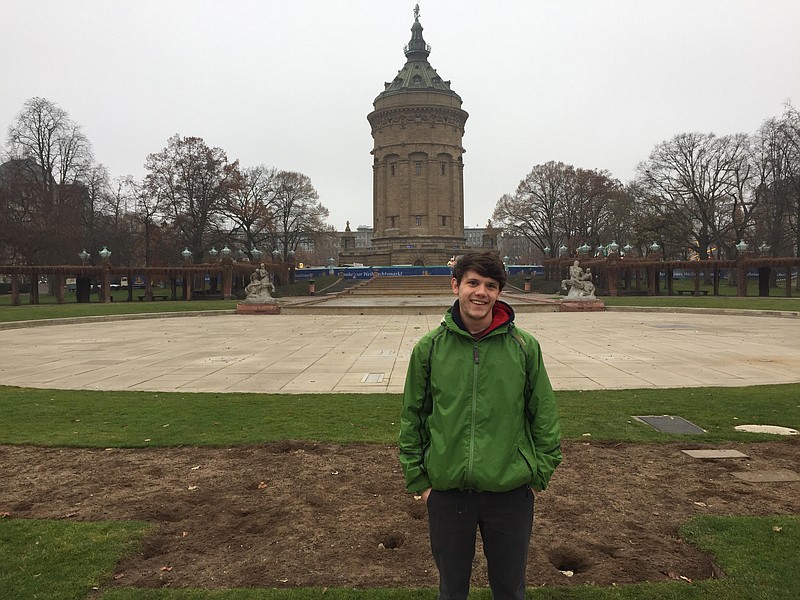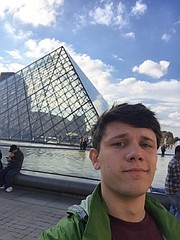With all the foreign interest in the U.S. presidential election, Britain's decision to leave the European Union and a rise in terrorism across Europe, this past fall was likely one of the more interesting semesters for American college students to study abroad in Europe. Three members of Signal Mountain High School's Class of 2014 gathered over winter break at Southern Star to talk about their experiences in Great Britain, Germany and the Czech Republic.
While each had a very different experience, they did have one common issue: fielding questions about the presidential election.
"I constantly got asked about Trump," said Mary Taylor Goeltz, who studied in Norwich, England.
Jonathan Shander traveled to Prague in the Czech Republic (or Czechia, as it was rather unsuccessfully rebranded last spring), where his school, American University in Washington, D.C., has a study abroad program for film students. He said he stayed up well into the night on Election Day to follow the results, and was asked to give his American perspective in an interview with a Czech news station.
"It brought me back to America a little bit," he said.
Harris Wickizer, who spent the semester studying in Germany with students from 17 countries, most of which he said were strongly anti-Trump, was asked to give a presentation for the other students on the election.
When asked about the main differences between the U.S. and their time abroad, Shander said that in Europe he had a lot more freedom to move around from place to place than in the United States.
"You can be in a different country with a different language in an hour," said Goeltz.
Britain's departure from the European Union added a bit of hassle to Goeltz's travel plans, with longer waits in customs, she said.
In Germany, Wickizer said he had a completely different experience.
"I took trains everywhere, and didn't go through customs or security anywhere," he said.
Wickizer said German professors differ from their American counterparts in that they treat their students more like adults.
Shander said he liked the way his Czech professors tackled issues head-on.
"They tell you bluntly what they think," said Shander, whose grade for the semester was based entirely on his final film project. "In America, the professors are nice, but not strict about what they think should work."
Goeltz, who chose Dickinson College in Carlisle, Penn., because of the strength of its study abroad program, said the university she attended in England was much larger than Dickinson, a small liberal arts college where teachers know your name and whether you're in class, which was not the case in Britain.
While the threat of terrorism was a concern, they said the way people in Europe view the risk is very different from the American perspective.
"I heard a lot about terrorism before I left, and was worried because I thought there was going to be this paranoid culture among the people there, but it doesn't affect their life at all," Shander said. "They don't find it to be that pertinent; they see it as an unfortunate thing that happens every once in a while."
Wickizer, who left Germany the day before the Christmas market attack in Berlin, said that while he felt safe in Germany, he didn't feel the same about Paris, where the presence of armed soldiers and large numbers of beggars gave the city a different sort of atmosphere in which he felt less comfortable.
One of Wickizer's favorite experiences was traveling alone to the Swiss Alps, as well as his trip to Amsterdam and going to Germany's Oktoberfest with Shander.
Goeltz was most impressed with her time in the uninhabited Canary Islands, formed by volcanoes and located off the coast of Spain.
Getting engrossed in another culture and learning what it's like to live differently was the best part of the experience for Shander, who said the most difficult part about leaving was telling the man who worked at a cheese shop near where he stayed that he probably would never see him again.
"I think every American should have to study abroad," said Wickizer, who's taken German for seven years and plans to eventually work in the German-American business industry. "We as Americans have no idea how inward we are."
"I would recommend it to anyone," said Goeltz, the only one of the three students returning to Europe for the spring semester.

